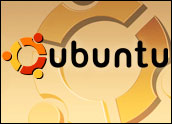
Sun Microsystems has announced plans to acquireSQL, maker of the popular MySQL database system, for US$1 billion.
Sun — long a proponent and developer of open source systems — agreed to pay $800 million in cash and assume liability for $200 million in stock options. The deal likely won’t be completed until the end of the fiscal year. During the transition, a team of executives from both companies will work to integrate the MySQL product line across Sun’s businesses. After the deal is finalized, MySQL CEO Marten Mickos will join Sun’s executive management team.
However, the two companies have already announced plans to integrate MySQL, OpenSolaris and GlassFish with Java to build a new Web applications platform.
Covering the Bases
Beyond the financial implications, the move is a signpost for future hybrid software development for corporations, with proprietary and open source software existing together in one product, said Bruce Guptill, managing director ofSaugatuck Technology.
“The biggest use of open source software won’t be a database or an operating system,” Guptill told LinuxInsider. “It will be hybrid systems. That’s exactly where the folks at MySQL see their company going, so getting involved with Sun is good because larger companies want to buy from a comfort vendor.”
The deal came about as Sun Microsystems searched for a way to capture the Web startup market, which largely relies on open source software, and expand its traditional corporate markets, which largely rely on proprietary software, Sun Microsystems CEO Jonathan Schwartz said.
“We heard some paradoxical things, too,”Schwartz wrote in his blog. “CTOs at startups and Web companies disallow the usage of products that aren’t free and open source. Alternatively, more traditional CIOs disallow the usage of products that aren’t backed by commercial support relationships — they’re more comfortable relying on vendors like Sun to manage global, mission critical infrastructure.”
Repositioning Sun
The move better positions Sun to promote the open source LAMP (Linux, Apache, MySQL, PHP) stack, which is used to run dynamic Web sites, to those larger corporations that are sometimes reticent to use free software, said Rob Enderle, principal analyst with the Enderle Group. However, the purchase won’t immediately create an open source product that soothes corporate concerns. In fact, Enderle said, it may take some time before Sun sees the benefit from this deal.
“Sun is a credible solution provider. MySQL from them should be vastly more popular than it was, because Sun is viewed as a trusted enterprise player,” Enderle told LinuxInsider. “However, they have not fully transitioned into a software company in the minds of the buyer yet and, as such, won’t have as big an impact as they might have in the future.”
The Need to Grow
Still, the long-term success of the deal will be judged on the integration of the products, said Guptill.
Smaller developers have a difficult time building revenues, so the most logical solution is to seek out an established partner, he suggested. While MySQL claims more than 100 million downloads of its software, it had never achieved a foothold with many large companies.
To grow and survive, MySQL needed to find a partner that could get it into corporate server rooms.
However, if the products fail to live up to expectations, it could make it more difficult for open source developers and dampen interest in future acquisitions. With Sun’s history of open source development, though, Guptill said that is unlikely.
“The MySQL acquisition, therefore, is both a harbinger and accelerator of an emerging trend,” he concluded. “The model is similar to Sun’s model regarding the OpenSolaris operating system, and is a model that Saugatuck expects to see increase in use by software and services vendors.”

















































